Astor Piazzolla (1921-1992): Tango Revolution
Astor Piazzolla
Without the shadow of a doubt, Astor Piazzolla (1921-1992) is the single most important figure in the history of the tango! While Carlos Gardel and Ángel Villoldo are credited with creating the “tango canción”—a subgenre that realistically reflected the life of the lowest classes of society— Astor Piazzolla is rightfully considered the father of the “tango nuevo.” A genius composer and performer, he revolutionized the traditional tango by turning disreputable and downright earthy folk music into a sophisticated form of art.
Tango Revolution
Piazzolla incorporated elements from jazz and classical music into the traditional tango, and introduced new forms of harmonic and melodic structure into the tango ensemble. And that included the integration of novel instruments, such as the saxophone and electric guitar.
This ingenious fusion of the tango with a wide range of recognizable Western musical elements—including counterpoint and passacaglia techniques—not only produced a new and unique musical style that transcended all earlier expressions, it also significantly contributed to the continued evolution of this art form.
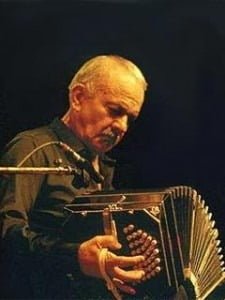
Piazzolla died in his beloved Buenos Aires 25 years ago, and in 2017 we celebrate the monumental legacy of one of South America’s greatest musical figures.
Astor Piazzolla: Oblivion (Guitar ver.)
Early Days
The only child of Italian immigrant parents, Astor Piazzolla was born in Mar del Plata, Argentina, but essentially spent his childhood in Greenwich Village in New York City. For his 9th birthday, his father gave him a bandoneon and Astor started to take lessons. Eventually he studied with Hungarian pianist Bela Wilda, a student of Rachmaninoff, who taught him to play Bach on his bandoneon.
Piazzolla composed his first tango and he met Carlos Gardel, who invited him on his tour to South America. His father decided that he was not yet old enough to go along, and forbid him to join the tour.
The initial disappointment proved fortunate, as Gardel and his entire orchestra perished in a plane crash in 1935. Piazzolla later joked, “If my father had not been so careful, I would be playing the harp rather than the bandoneon.” Once the family returned to Mar del Plata, Piazzolla played in a variety of tango orchestras and eventually moved to Buenos Aires.
He soon realized his dream of joining the orchestra of widely renowned bandoneonist Anibal Toilo in 1938, and on the advice of pianist Arthur Rubinstein took lessons from composer Alberto Ginastera and pianist Raúl Spivak. For 5 years, Piazzolla studied the scores of Ravel, Bartók, and Stravinsky alongside compositions originating from American jazz.
Libertango (piano solo arr.)
Tensions mounted between Piazzolla and Troilo, who feared that the advanced musical ideas of the young bandoneonist might undermine the style of his orchestra and make it less appealing to dancers of tango. In 1944, Piazzolla left Troilo’s group, and unsure of his musical directions, briefly left the tango and bandoneon behind to compose a number of film scores.
He furthered his musical studies with the conductor Hermann Scherchen, and in 1953 entered his composition Buenos Aires into the Fabien Sevitzky competition. The work elicited strong reactions as it featured the inclusion of two bandoneons into the symphonic orchestra.
However, it also won him a scholarship from the French government to study with Nadia Boulanger in Paris. Boulanger strongly encouraged Piazzolla not to ignore tango, but to infuse the traditional form with his jazz and classical training. “Astor,” she said, “your classical pieces are well written, but the true Piazzolla is in the tango, never leave it behind.”
When he returned home in 1955 he immediately formed the “Octeto Buenos Aires,” a legendary group that played tango as self-contained chamber music. Tango purists were not amused, and eventually forced him into exile in New York City where Piazzolla further experimented with a fusion of jazz and tango.
Milonga del Angel (Piano solo with sheet music)
International Recognition
Once he returned to Buenos Aires in 1960, Piazzolla refined and experiment heavily with all aspects of tango. His collaboration with poet Horacio Ferrer produced the groundbreaking “little opera” Maria de Buenos Aires, and a series of tango songs.
Piazzolla’s music started to gain international recognition, and when Argentina’s government was taken over by a conservative military faction, he decided to move to Italy. A series of recordings that would span a period of five years included the famous Libertango, and in 1982 the album Oblivion.
Extensively traveling the world, and at the height of his international fame, Piazzolla underwent quadruple bypass surgery in 1988. He sufficiently recovered to go on tour in 1989, but a severe stroke left him in a coma and he died two years later on 4 July 1992.
Piazzolla considered the fusion of tango with the music of Bartok and Stravinsky “the tango of the future,” and the complexity of his oeuvre brought him international acclaim and a secured place in the history of 20th century music.
Oblivion (2 pianos)
Piazzolla’s musical analysis:
APPROACHING PIAZZOLLA’S MUSIC: an analysis of his music and composition styles (1/2)
APPROACHING PIAZZOLLA’S MUSIC: an analysis of his music and composition styles (2/2)

Browse in the Library:
| Artist or Composer / Score name | Cover | List of Contents |
|---|---|---|
| The Phantom of the Opera – Andrew Lloyd Webber (Piano, Vocal, Guitar) |
 |
 |
| The Physical Basis Of Piano Touch And Tone (By Ortmann Otto) (1925) |
 |
|
| The pianist Anthology (28 favorite pieces collection) (1920) |
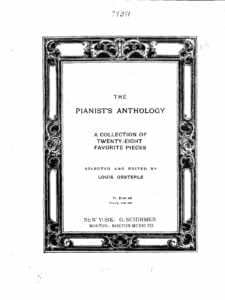 |
|
| The Piano A History In 100 Pieces by Susan Tomes (Book) |
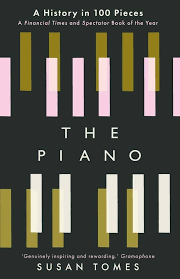 |
|
| The Piano Guys |
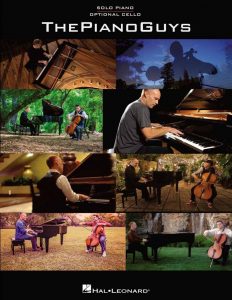 |
The Piano Guys |
| The Piano Guys – O Come O Come Emmanuel |
 |
|
| The Piano Guys Christmas Together Piano Solo With Optional Cello |
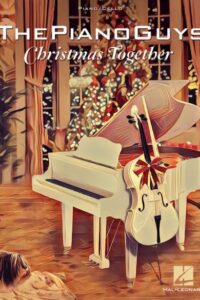 |
The Piano Guys Christmas Together Piano Solo With Optional Cello Contents |
| The Piano Guys Jon Schmidt I Do |
 |
|
| The Piano Guys Jon Schmidt Piano Solos I | The Piano Guys Jon Schmidt Piano Solos I |
 |
| The Piano Guys Jon Schmidt Piano Solos II | The Piano Guys Jon Schmidt Piano Solos II | |
| The Piano Guys Jon Schmidt Piano Solos III | The Piano Guys Jon Schmidt Piano Solos III |
 |
| The Piano Guys Let It Go Disneys Frozen Vivaldis Winter | The Piano Guys Let It Go Disneys Frozen Vivaldis Winter | |
| The Piano Guys Michael Meets Mozart | The Piano Guys Michael Meets Mozart | |
| The Piano Guys Perfect (piano solo) |
 |
|
| The Piano Odyssey Etudes 1 Celebration Series RCM |
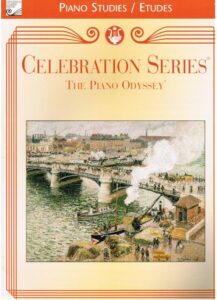 |
|
| The Piano Odyssey Etudes 2 (Celebration Series RCM) |
 |
|
| The Piano Odyssey Etudes 3 Celebration Series RCM |
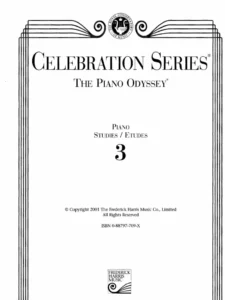 |
|
| The Piano Odyssey Etudes 4 (Celebration Series) RCM |
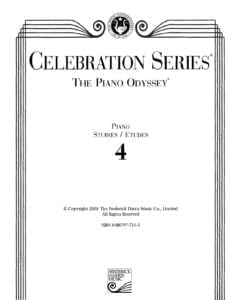 |
|
| The Piano Odyssey Repertoire 1 (Celebration Series) RCM |
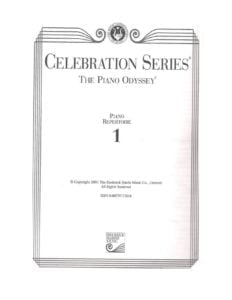 |
|
| The Piano Odyssey Repertoire 10 (Celebration Series) RCM |
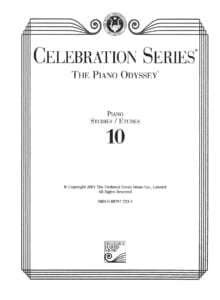 |
|
| The Piano Odyssey Repertoire 2 (Celebration Series) RCM |
 |
|
| The Piano Odyssey Repertoire 3 (Celebration Series) RCM |
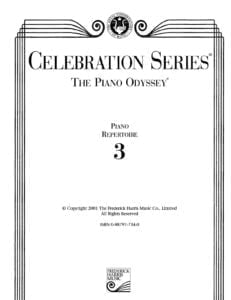 |
|
| The Piano Odyssey Repertoire 4 (Celebration Series) RCM |
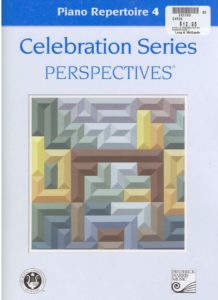 |
|
| The Piano Odyssey Repertoire 6 (Celebration Series) RCM |
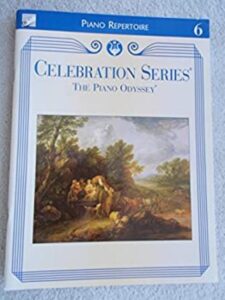 |
The Piano Odyssey Repertoire 6 |
| The Piano Odyssey Repertoire 7 (Celebration Series) RCM |
 |
|
| The Piano Odyssey Repertoire 8 (Celebration Series) RCM |
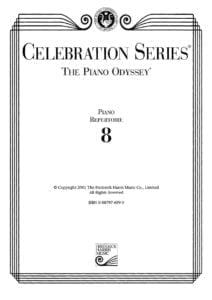 |
|
| The Pianoforte And Its Music (By Henry Edward Krehbiel) (1911) |
 |
|
| The Pink Floyd Song Book (Guitar) |
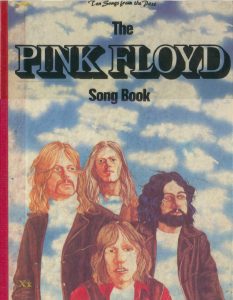 |
The Pink Floyd Song Book (Guitar)_compressed |
| The Pink Panther Full Theme (Musescore File).mscz | ||
| The Place I’ll Return To Someday – Final Fantasy Ix (Musescore File).mscz | ||
| The Platters – The Great Pretender |
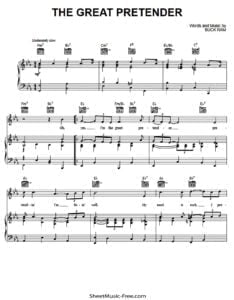 |
|
| The Platters Anthology |
 |
The Platters Anthology |
| The Polar Express – Believe – Glen Ballard | The Polar Express – Believe sheet music | |
| The Polar Express – Selections from |
 |
The Polar Express – Selections from |
| The Polar Express – When Christmas Comes to Town – Glen Ballard | ||
| The Police – Every Breath You Take – Arr. For Guitar (Musescore File).mscz | ||
| The Police – Guitar Signature Licks with audio MP3 with TABs |
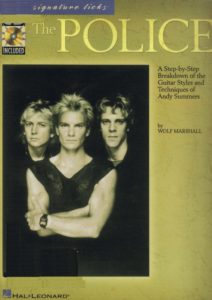 |
The Police – Guitar Signature Licks |
| The Police – Play Guitar With The Police (Book + audio MP3) with Tablature |
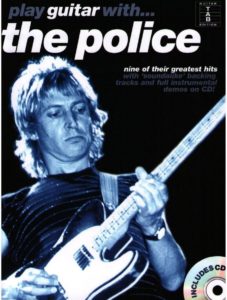 |
Play Guitar With – The Police |
| The Police – The Best (songbook) Guitar with TABs |
 |
The Police – The Best (songbook) |
| The Police – The Great Songs of The Police |
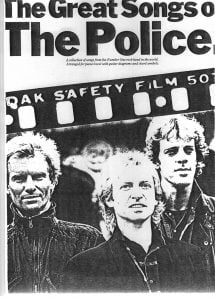 |
Police – The Great Songs of The Police |
| The Police – Walking on the Moon The Untold Story by Chris Campion (Book) |
 |
|
| The Practical Jazz Guitarist – by Mark White (Berklee Press) |
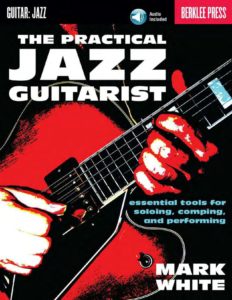 |
The Practical Jazz Guitarist – by Mark White |
| The Pretenders – I’ll Stand By You (Piano, vocal, guitar) |
 |
|
| The Princess And The Frog – Randy Newman Easy Piano arr. |
 |
The Princess And The Frog – Newman R. Easy Piano |
| The Principles Of Expression In Pianoforte Playing (By Adolph Friedrich Christiani) (1885) |
 |
|
| The Producers – Betrayed!, From the Musical by Mel Brooks |
 |
|
| The Producers Music Theory Handbook May 2023 |
 |
|
| The Punisher – Money For Everyone – Carlo Siliotto | ||
| The Queen – Alexandre Desplat |
 |
|
| The Quotable Musician From Bach To Tupac (eBook) |
 |
|
| The Ragtime songbook songs of – Charters, Ann, ed. 1965 |
 |
The Ragtime songbook songs of – Charters, Ann, ed (1965) |
| The Readers Digest Childrens Songbook |
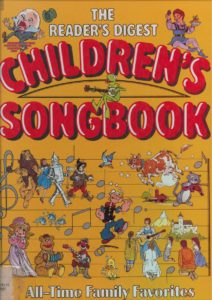 |
The Readers Digest Childrens Songbook |
| The Real Boogie Woogie Memphis Slim Piano Solos (1959) Book |
 |
|
| The Real Book 6th Ed |
 |
The Real Book 6th Ed |
| The Real Book Jazz Standards In C Version – A Collection of some of the greatest songs of the 20th Century |
 |
The Real Book Jazz Standards In C Version |
| The Real Book of Blues – 225 great blues Melody Line, chords, lyrics |
 |
The Real Book of Blues |
| The Real Book Of Funk Jazz |
 |
real book of funk |
| The Real Book Of Jazz Volume I 5th Edition sheet music pdf |
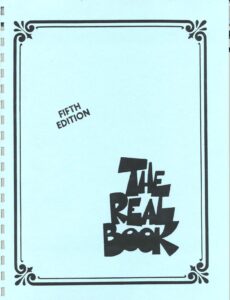 |
real book of jazz |
| The Real Book of Jazz Volume II (All new) |
 |
The Real Book of Jazz Volume II |
| The Real Book of Jazz Volume III (all new) |
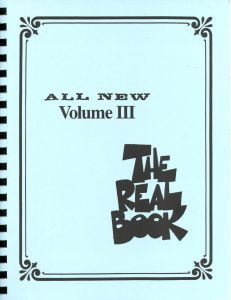 |
The Real Book of Jazz Volume III |
| The Real Book of Jazz Volume IV for C Instruments |
 |
The Real Book of Jazz Volume IV for C Instruments |
| The Real Book of Jazz Volume V |
 |
The Real Book of Jazz Volume V |
| The Real Christmas Book Fake |
 |
The Real Christmas Book Fake |
| The Real JAZZ Vol. 5 |
 |
|
| The Real Little Classical Fake Book (over 600 Classical Themes and Melodies |
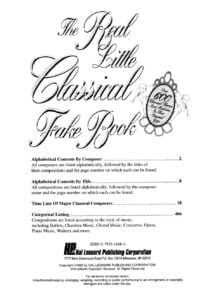 |
Real classical fake book sheet music |
| The Real Rock Book 2 |
 |
Real Rock Guitar by Kenn ChipkinThe Real Rock Book 2 |
| The Real Songbook – Bossa Nova 1 Brazilian Jazz Real Book (Sheet Music) | The Real Songbook – Bossa Nova 1 Brazilian Jazz Real Book | |
| The Red Book Great Piano Solos |
 |
The Red Book Great Piano Solos |
| The Reggae Songbook – Music Sales Corporation |
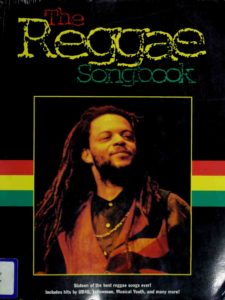 |
The Reggae Songbook – Music Sales Corporation |
| The Ring – End Credits Hans Zimmer |
 |
|
| The Rock Story Edited By Theo Cateforis (Book) |
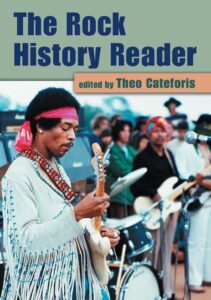 |
|
| The Rocky Horror Picture Show Science Fiction Double | The Rocky Horror Picture Show – Science Fiction Double | |
| The Rolling Stones Let It Bleed Authentic Guitar TABs |
 |
The Rolling Stones Let It Bleed Authentic Guitar TABs |
| The Rolling Stones – Best Of (Guitar Bass Drums Songbook) |
 |
The Rolling Stones – Best Of (Guitar Bass Drums Songbook) |
| The Rolling Stones – Get Off Of My Cloud | ||
| The Rolling Stones Classics – Volume One – Off The Record (Guitar Bass Drum Songbook) |
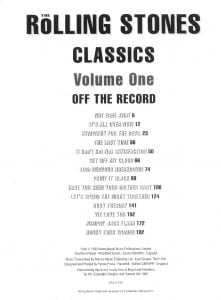 |
The Rolling Stones Classics – Volume One- Off The Record (Guitar Bass Drum Songbook) |
| The Rolling Stones Guitar Play-Along Volume 66 – with audio MP3 embedded with TAB |
 |
The Rolling Stones Guitar Play |
| The Rolling Stones Rock Score |
 |
|
| The Rolling Stones Songbook (Sheet Music Guitar Tab) |
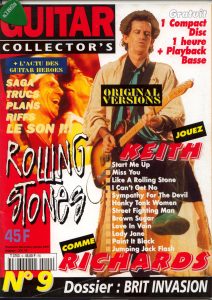 |
|
| The Russian School of Piano playing 1 |
 |
|
| The Russian School Of Piano Playing 2 |
 |
|
| The Sapin (Musescore File).mscz | ||
| The School Of Velocity Op 299 No. 1 (Musescore File).mscz | ||
| The Scientist – Coldplay Piano Arrangement(1) (Musescore File).mscz | ||
| The Secret History of Rock. The Most Influential Bands You’ve Never Heard |
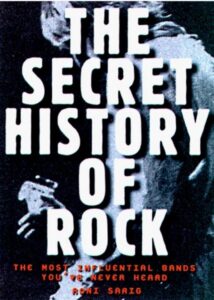 |
|
| The secret Life of Glenn Gould, A Genius in Love, by Michael Clarkson (2010) Biography |
 |
|
| The Shadow Of Your Smile (Musescore File).mscz | ||
| The Shadow of your Smile Johnny Mandel Francis Webster Jazz Standard arr. Carsten Gerlitz |
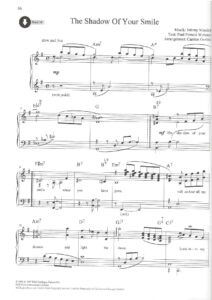 |
|
| The Shadow of your Smile(lead sheet) Mandel & Webster |
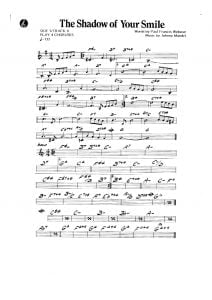 |
|
| The Shadows – 20 Big Hits – Songbook |
 |
The Shadows songbook |
| The Shadows Easy Guitar Hits |
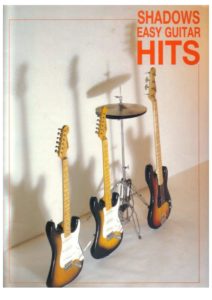 |
The Shadows Easy Guitar Hits |
| The Shape of Water (Alexandre Desplat) | ||
| The Shawshank Redemption – Stoic Theme – Thomas Newman | ||
| The Simpson’s Theme (Piano) Sheet Music |
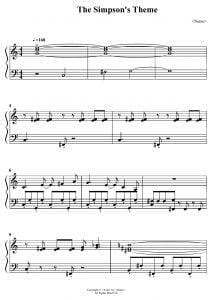 |
|
| The Simpsons – Main Title | ||
| The Simpsons Baby On Board | The-Simpsons-Baby-On-Board | |
| The Simpsons Minimum Wage Nanny | The Simpsons Minimum Wage Nanny | |
| The Simpsons Songbook – Danny Elfman |
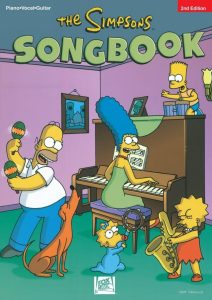 |
The Simpsons songbook |
| The Simpsons Theme (Musescore File).mscz | ||
| The Simpsons Theme by Danny Elfman |
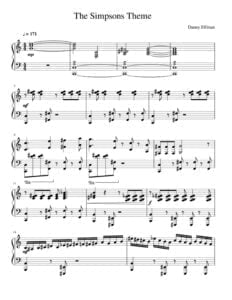 |
|
| The Sims Build Theme No. 1 |
 |
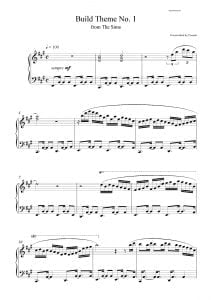 |
| The Slick Book |
 |
|
| The Smiths – Anthology |
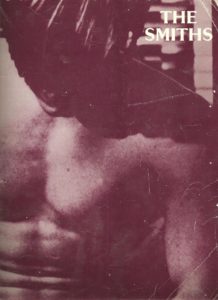 |
The Smiths – Anthology |
| The Smiths Best Of |
 |
The Smiths Best Of |
| The Song Is You – Jazz Standard | The Song Is You – Jazz Standard | |
| The Song Of Purple Summer (Musescore File).mscz | ||
| The Song Of Purple Summer Dunkan Sheik And Steven Sater (Musicals) |
 |
|
| The Song Writing Genius Within You by Geoffrey Williams (Book)2008 |
 |
|
| The Sound Of Music – Climb Every Mountain – Julie Andrews | ||
| The Sound Of Music – Rodgers & Hammerstein (Sheet Music Book) Vocal selections |
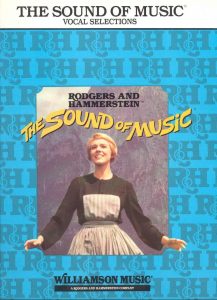 |
The Sound of Music |
| The Sound Of Silence – Simon & Garfunkel (Musescore File).mscz | ||
| The Spirit Of God Like a Fire is Burning Mixed Chrus and Organ or Pino by Mark Wilberg Ssaattbb |
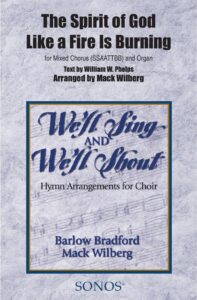 |
|
| The Story Of Music From Babylon To The Beatles How Music Has Shaped Civilization (Book) |
 |
|
| The Streets Of Laredo – American Cowboy Song Johnny Cash (Musescore File).mscz | ||
| The Strokes – Is This It (guitar with TABs) |
 |
The Strokes |
| The Third Man Theme By Anton Karas Guitar TABs |
 |
|
| The Three Tenors Songbook (for high voice and piano) |
 |
The Three Tenors Songbook |
| The Time Machine – The Eloi – Klaus Badelt | The Time Machine The Eloi Klaus Badelt 1st page | |
| The Tokens – The Lion Sleeps Tonight (Piano Solo arr. sheet music, Noten, partitura, partition) |
 |
|
| The Tokens – The_Lion_Sleeps_Tonight Piano Solo arr.mscz |
